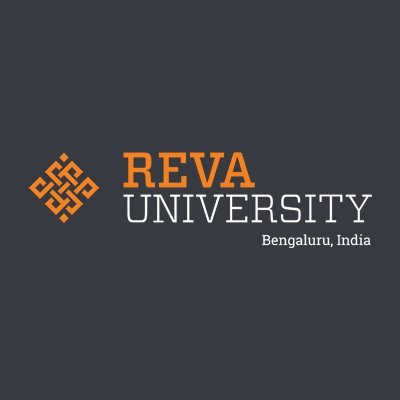[ad_1]
Introduction
This edited volume offers a globally comparative, interdisciplinary inquiry into the legal, policy, and socio-cultural frameworks shaping poverty alleviation in the era of the United Nations Sustainable Development Goals (SDGs). Framing its analysis around SDG 1 (No Poverty) while critically engaging with Goals 4 (Quality Education), (Gender Equality), 10 (Reduced Inequalities), and 13 (Climate Action), the book interrogates the systemic, often intersectional forces that perpetuate poverty, marginalization, and inequality.
The volume takes as its foundational premise the understanding that poverty is not merely a deficit of income, but a multifaceted deprivation of rights, access, capabilities, and dignity. Contributors are invited to adopt conceptually rigorous and context-sensitive frameworks that explore poverty as a structural condition produced and sustained through policy choices, institutional failures, and socio-economic hierarchies.
This volume is not ideologically prescriptive; rather, it provides space for diverse disciplinary perspectives while demanding conceptual clarity and normative engagement with justice, sustainability, and inclusion. The title Poverty and Progress reflects a dual analytical lens on the one hand, examining the global push toward developmental progress through the SDGs, and on the other, critically unpacking how narratives of progress often obscure persisting inequalities and exclusions.
The volume brings together case studies and empirical analyses across regions Asia, Africa, Latin America, the Middle East, and beyond to assess how national and local actors interpret and implement development goals, with particular focus on community agency, participatory governance, and cultural resilience.
About the Publisher
This book is scheduled to be published by IGI Global Scientific Publishing, an international academic publisher of the “Information Science Reference,” “Medical Information Science Reference,” “Business Science Reference,” and “Engineering Science Reference” imprints.
IGI Global Scientific Publishing specializes in publishing reference books, scholarly journals, and electronic databases featuring academic research on a variety of innovative topic areas including, but not limited to, education, social science, medicine and healthcare, business and management, information science and technology, engineering, public administration, library and information science, media and communication studies, and environmental science.
Target Audience
Target Audience and Intended Use: This volume is aimed at an academic and practitioner readership, including:
- Scholars and students in development studies, public policy, human rights, law, sociology, and environmental studies.
- Policy-makers and government officials seeking evidence-based, context-aware approaches to poverty alleviation and SDG implementation.
- Civil society actors, NGOs, and international development organizations focused on designing inclusive, locally grounded development strategies.
- Educators and researchers engaged in curriculum development around sustainable development, global justice, and poverty studies. It is particularly suitable as a core or supplementary text in postgraduate courses on global development, international cooperation, and rights-based policy design.
By integrating theoretical inquiry, empirical research, and grounded case studies, the volume fills a crucial gap in the literature on poverty eradication and the real world impact of the SDGs. Rather than viewing poverty as a statistical challenge to be managed, Poverty and Progress urges its readers to engage with it as a human condition shaped by systems of power, resilience, and meaning. With the 2030 deadline fast approaching, the volume contributes both critical reflection and actionable pathways toward development that is just, inclusive, and deeply rooted in community knowledge and values.
Topics
The edited volume will feature thematically and geographically diverse chapters addressing the following broad
areas:
- Reframing Poverty in a Rights-Based, Post-Pandemic World
- The SDG Infrastructure: Law, Accountability, and Implementation Gaps Cultural Economies and Indigenous Models of Development
- Digital Exclusion, Access, and the Future of Inclusive Innovation
- Gender, Caste, and the Intersectional Politics of Poverty
- Localizing the SDGs: From Global Goals to Community-Led Action
- Resilience and Resistance: Narratives from Marginalized Communities
- Development Beyond Growth: Justice, Sustainability, and Human Dignity
How to Submit?
Interested candidates can submit papers via the link given at the end of the post.
Important dates
Researchers and practitioners are invited to submit on or before September 14, 2025, a chapter proposal of 1,000 to 2,000 words clearly explaining the mission and concerns of his or her proposed chapter. Authors will be notified by September 28, 2025 about the status of their proposals and sent chapter guidelines. Full chapters of a minimum of 10,000 words (word count includes references and related readings) are expected to be submitted by December 7, 2025,
- September 14, 2025: Proposal Submission Deadline
- September 28, 2025: Notification of Acceptance
- December 7, 2025: Full Chapter Submission
- January 18, 2026: Review Results Returned
- February 15, 2026: Final Acceptance Notification
- February 22, 2026: Final Chapter Submission
Contact
Amit Anand REVA University amit.anand@reva.edu.in
Jyothis Mary Hume Institute for Postgraduate Studies jyothis.mary@humelausanne.ch
Ummul Waraah Woxsen University ummul.waraah@woxsen.edu.in
Click here to submit.
Disclaimer: WEF April, 2021, Lawctopus will not publish any ‘Call for Papers/Blogs’ by journals that charge money at the time of submission. If you find any journal doing so, please intimate us at tanuj.kalia[at]lawctopus.com
[ad_2]
Source link


